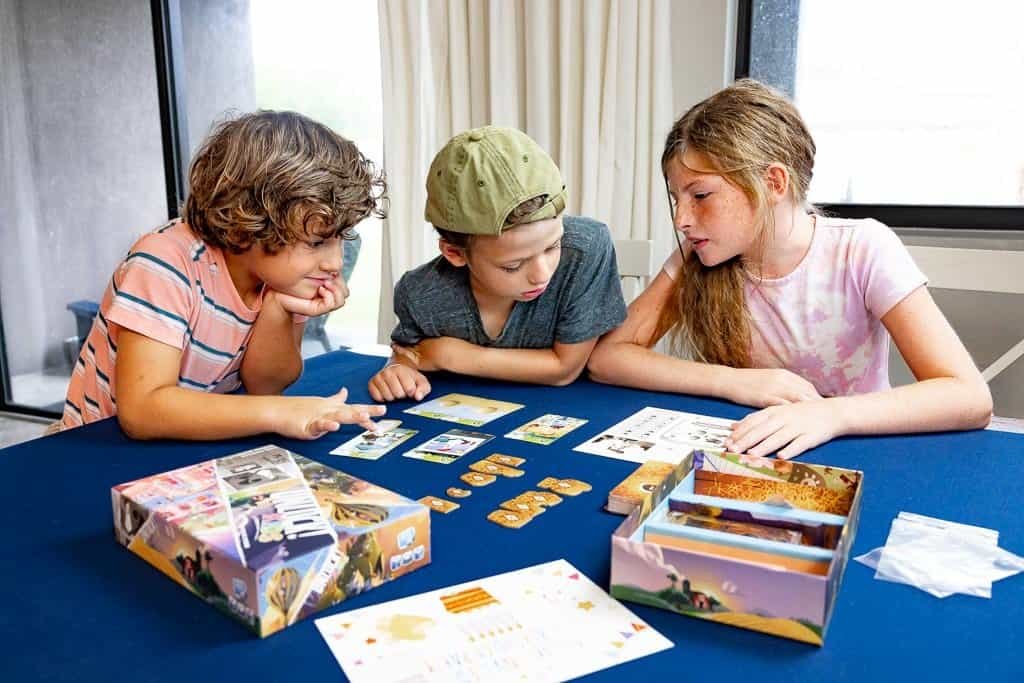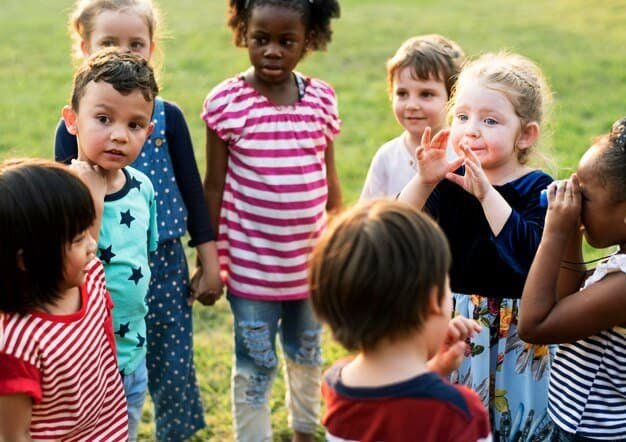Imagine this: Your child is excitedly engaged in a game, laughing, solving problems, and making decisions—all while unknowingly developing essential life skills. Social skills are a crucial part of growing up, helping kids navigate friendships, family interactions, and even future workplace relationships.
But let’s be honest—teaching social skills at home can sometimes feel like an uphill battle. How do you make learning communication, empathy, and teamwork fun instead of feeling like another lesson?
That’s where social skills games come in! These interactive, engaging activities provide a structured way for kids to practice important social behaviors—while having a blast.
In this article, you’ll discover seven exciting social skills games that will help your child develop communication, emotional intelligence, and teamwork—all from the comfort of home!
Why Social Skills Matter for Kids
Before we dive into the games, let’s talk about why social skills are essential for kids. Developing strong social abilities helps children:
- Build confidence in social situations
- Improve problem-solving and conflict resolution skills
- Strengthen empathy and emotional intelligence
- Develop teamwork and cooperation
- Enhance communication, both verbal and non-verbal
Now, let’s explore seven engaging games that make learning these skills a fun-filled experience!
1. Emotion Charades: Learning to Express Feelings
How to Play:
- Write different emotions on slips of paper (happy, sad, excited, frustrated, etc.).
- Place them in a bowl.
- Each player takes turns picking a slip and acting out the emotion without speaking.
- Others guess the emotion being displayed.
Skills Developed:
✔ Emotional intelligence
✔ Empathy
✔ Non-verbal communication
Why It Works:
Emotion Charades helps children recognize and express feelings in a safe and playful environment. By observing others, they learn that body language and facial expressions play a huge role in communication.
2. The Listening Game: Strengthening Attention & Active Listening
How to Play:
- One player tells a short story or gives directions.
- The other player listens carefully and repeats back key details.
- Take turns switching roles.
✔ Active listening
✔ Focus and attention
✔ Communication
Why It Works:
In today’s digital world, active listening is a superpower! This game encourages kids to pay close attention and respond thoughtfully, building a strong foundation for better conversations.
3. Collaborative Storytelling: Boosting Creativity & Cooperation
How to Play:
- Start a story with a simple sentence (e.g., “Once upon a time, a little girl found a mysterious key…”).
- Each player adds a new sentence to build the story.
- Keep going until the story reaches a natural end.
Skills Developed:
✔ Creativity
✔ Turn-taking
✔ Teamwork
Why It Works:
This game teaches patience and cooperation, as kids must listen to others and build on their ideas. Plus, it sparks creativity and helps with language development!
4. Social Scenario Role-Playing: Preparing for Real-Life Situations
How to Play:
- Write common social situations on index cards (e.g., “A friend takes your toy” or “Someone is being left out”).
- Kids take turns acting out how they would handle each scenario.
Skills Developed:
✔ Conflict resolution
✔ Empathy
✔ Problem-solving
Why It Works:
Role-playing gives kids a safe space to practice social situations before they happen in real life. This helps them build confidence and improve their reactions in different scenarios.
5. Board Games with a Twist: Enhancing Social Interaction


How to Play:
- Choose a board game like Candy Land, Uno, or Snakes & Ladders.
- Add a social skills challenge for each turn (e.g., “Give someone a compliment before rolling”).
Skills Developed:
✔ Turn-taking
✔ Good sportsmanship
✔ Positive communication
Why It Works:
Classic board games already encourage turn-taking and strategy, but adding social skill challenges enhances their impact!
6. Compliment Circle: Encouraging Positivity


How to Play:
- Sit in a circle.
- Each player takes turns giving a compliment to the person next to them.
- Go around until everyone has received and given a compliment.
Skills Developed:
✔ Self-esteem
✔ Kindness
✔ Positive communication
Why It Works:
This simple yet powerful game teaches kids the value of appreciation while boosting self-confidence!
7. Mirror Me: Learning Non-Verbal Communication
How to Play:
- One player makes a movement (e.g., clapping hands, waving, funny face).
- The other player must mirror their actions exactly.
- Switch roles and continue!
Skills Developed:
✔ Non-verbal communication
✔ Observation
✔ Cooperation
Why It Works:
Most communication is non-verbal! This game helps kids understand body language and facial expressions, making them more aware of social cues.
Final Thoughts: Making Social Learning Fun & Engaging
Helping kids develop social skills doesn’t have to feel like a lesson—it can be fun, interactive, and meaningful with the right games!
By incorporating these seven engaging activities into your daily routine, your child will naturally build communication, teamwork, and empathy skills—while having a great time.
Ready to Take the Next Step?
- Try one of these games today and see how your child responds!
- Share this post with other parents looking for creative ways to teach social skills at home.
- Explore more child development resources to keep learning fun!
Which game are you most excited to try? Let us know in the comments!



